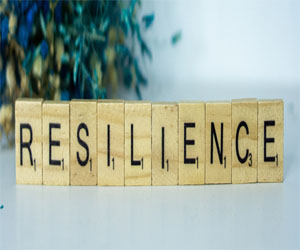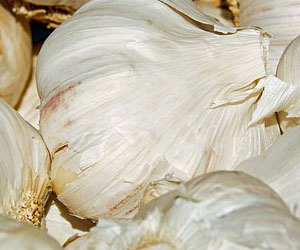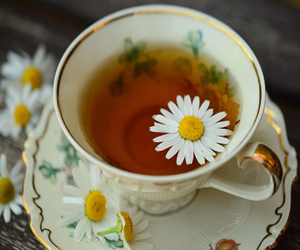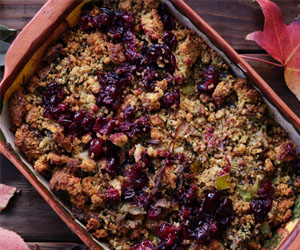


A Path To Inner Peace And Balance

In our fast-paced, ever-connected world, it's easy to get caught up in the chaos of daily life, often neglecting our own well-being. Mindful living is an approach that offers a powerful antidote to the hustle and bustle, guiding us toward a more balanced and fulfilling existence. By cultivating mindfulness, we can enhance our well-being, reduce stress, and find inner peace.
Understanding Mindful Living
Mindful living is a lifestyle that revolves around being fully present in each moment, without judgment. It's about paying attention to your thoughts, feelings, and sensations as they arise, accepting them without criticism, and experiencing life as it unfolds. At its core, mindful living is an invitation to savor the present moment.
The Power Of Presence
One of the primary benefits of mindful living is the ability to be fully present in all aspects of life. When you're mindful, you're not dwelling on the past or worrying about the future; you're right here, right now. This kind of presence allows you to appreciate the beauty of everyday moments, whether it's the taste of your morning coffee, the warmth of a hug, or the sound of birds singing.
Reducing Stress And Anxiety
Stress and anxiety are common companions in today's world. Mindful living offers a way to manage and even alleviate these burdens. By focusing on the present moment and approaching life's challenges with an open and nonjudgmental attitude, you can reduce the mental clutter that often contributes to stress and anxiety. This practice allows you to respond to life's difficulties with greater resilience and composure.
Enhancing Emotional Well-Being
Mindful living also has a profound impact on emotional well-being. It encourages self-awareness and self-compassion, helping you understand your feelings and react to them with kindness rather than judgment. This emotional intelligence can improve relationships with yourself and others, as well as boost overall contentment.
Mindful Practices For Everyday Life
Incorporating mindfulness into your daily routine doesn't require elaborate rituals. Simple practices can make a big difference:
Meditation: A few minutes of meditation each day can help you establish a daily mindfulness habit.
Deep Breathing: Taking a moment to focus on your breath, inhaling and exhaling deeply, can center you in the present moment.
Mindful Eating: Paying full attention to the flavors, textures, and sensations of your food can turn a meal into a meditative experience.
Gratitude Journaling: Reflecting on the things you're grateful for each day can shift your focus to the positive aspects of life.
Nature Walks: Spending time in nature and truly immersing yourself in the beauty of the outdoors can be a profound mindfulness practice.
Mindful living is a journey to well-being that anyone can embark upon. It doesn't require special skills or extensive training—just a willingness to be fully present in your life. By embracing mindful living, you can reduce stress, enhance emotional well-being, and find greater inner peace. It's an invitation to savor the simple moments and experience life in all its richness, ultimately leading to a more balanced and fulfilling existence.
Cultivating A Fulfilling Life
 Embracing The Present Moment: Mindfulness teaches us to be fully present in each moment. Gratitude complements this by encouraging us to recognize and appreciate the small yet precious details of life - the warmth of the sun on our skin, the laughter of loved ones, or the taste of a delicious meal. By savoring these moments, we become more attuned to the richness of the present.
Embracing The Present Moment: Mindfulness teaches us to be fully present in each moment. Gratitude complements this by encouraging us to recognize and appreciate the small yet precious details of life - the warmth of the sun on our skin, the laughter of loved ones, or the taste of a delicious meal. By savoring these moments, we become more attuned to the richness of the present.
Shifting Perspective: Gratitude encourages us to shift our perspective from what we lack to what we have. This change in mindset can be a powerful tool in mindfulness. When we focus on the positive aspects of our lives, we reduce stress and anxiety, creating a mental space where we can truly live in the moment.
Enhancing Emotional Well-Being: Regularly practicing gratitude has been linked to improved emotional well-being. It helps regulate emotions, reduce negative feelings, and increase overall happiness. In a state of mindfulness, we are better equipped to process our emotions and respond to them with greater clarity and balance.
Strengthening Relationships: Gratitude is not limited to recognizing the beauty in our surroundings but also extends to the people in our lives. Expressing gratitude towards friends, family, and colleagues fosters deeper connections and nourishes the bonds we share. Mindfully acknowledging the importance of these relationships adds richness to our journey.


A Journey To Better Health
 2. Assess Your Reasons: Determine the driving factors behind your decision to transition to a gluten-free lifestyle. Whether it's due to a medical condition like celiac disease or non-celiac gluten sensitivity, or a choice for improved well-being, having clarity about your motivation can help you stay committed to the change.
2. Assess Your Reasons: Determine the driving factors behind your decision to transition to a gluten-free lifestyle. Whether it's due to a medical condition like celiac disease or non-celiac gluten sensitivity, or a choice for improved well-being, having clarity about your motivation can help you stay committed to the change.
3. Consult A Healthcare Professional: If you suspect you have a gluten-related medical condition, consult a healthcare professional for testing and diagnosis. They can provide guidance on the necessity of a gluten-free lifestyle and any specific dietary restrictions.
4. Read Labels Carefully: Effective label reading is essential for identifying gluten-free foods. Look for products that are explicitly labeled as "gluten-free." Also, educate yourself about potential hidden sources of gluten in ingredient lists.
5. Embrace Naturally Gluten-Free Foods: Naturally gluten-free foods include fruits, vegetables, lean proteins, and gluten-free grains like rice and quinoa. These items form the foundation of a nutritious gluten-free diet.
6. Stock Your Kitchen: Ensure your kitchen is well-stocked with gluten-free essentials. This includes gluten-free grains, gluten-free flours for baking, gluten-free pasta, and a variety of gluten-free snacks.
7. Experiment With Recipes: Transitioning to a gluten-free lifestyle provides an opportunity to explore new recipes and culinary techniques. Experiment with gluten-free flours and discover new flavors and textures that are unique to this way of eating.
8. Be Cautious Of Cross-Contamination: Cross-contamination can be a challenge, especially if you share a kitchen with gluten-eating family members.
Effective Strategies For Navigating Life's Challenges
 Effective Resilience Strategies
Effective Resilience Strategies
Develop Emotional Intelligence: Emotional intelligence involves understanding and managing your emotions effectively. It's a foundational skill for resilience, as it allows you to navigate challenging situations with self-awareness and emotional control.
Maintain A Growth Mindset: A growth mindset is the belief that you can learn and grow from experiences, including failures. Embrace challenges as opportunities for growth rather than setbacks, and you'll be better equipped to bounce back.
Cultivate Social Connections: Building a strong support system is vital for resilience. Nurturing positive relationships with friends and family provides emotional support, encouragement, and a sense of belonging during tough times.
Practice Self-Care: Taking care of your physical and mental well-being is essential. Regular exercise, proper nutrition, and adequate sleep contribute to your resilience by strengthening your body and mind.
Set Realistic Goals: Break down your long-term goals into smaller, achievable steps. This approach fosters a sense of accomplishment and progress, boosting your self-esteem and resilience.
Embrace Problem-Solving: Resilient individuals focus on solutions rather than dwelling on problems. When faced with challenges, assess the situation, identify possible solutions, and take action.
Mindfulness And Stress Management: Mindfulness techniques, like meditation and deep breathing, help you manage stress and anxiety. They promote emotional regulation and a sense of calm in the face of adversity.






Navigating The Path To Positive Changes
 3. Exploring Gluten-Free Alternatives: Fortunately, the market offers a wide variety of gluten-free alternatives to traditional gluten-containing products. From gluten-free bread and pasta to baking mixes, you can enjoy many of your favorite foods without sacrificing taste or quality.
3. Exploring Gluten-Free Alternatives: Fortunately, the market offers a wide variety of gluten-free alternatives to traditional gluten-containing products. From gluten-free bread and pasta to baking mixes, you can enjoy many of your favorite foods without sacrificing taste or quality.
4. Meal Planning: Meal planning becomes an integral part of a gluten-free lifestyle. Planning your meals and snacks in advance ensures that you have gluten-free options readily available and reduces the risk of accidental gluten exposure when dining out or on the go.
5. Cooking And Baking Skills: For many, transitioning to a gluten-free lifestyle involves developing new cooking and baking skills. Gluten-free flours, thickeners, and other ingredients may behave differently than their gluten-containing counterparts. Embrace the opportunity to explore new recipes and cooking techniques.
6. Dining Out And Travel: Dining out and traveling can pose unique challenges for those on a gluten-free diet. It's essential to communicate your dietary needs clearly to restaurant staff and do some research in advance to identify gluten-free options at your destination.
7. Nourishing Your Body: A gluten-free lifestyle can provide an opportunity to rethink your dietary choices. Focus on nourishing your body with whole, unprocessed foods like fruits, vegetables, lean proteins, and gluten-free grains like quinoa and rice. This can lead to better overall health and well-being.
Nurturing Well-Being With Nature's Fragrances
 The Essence Of Aromatherapy
The Essence Of Aromatherapy
Aromatherapy, with its roots dating back to ancient civilizations, is founded on the principle that our sense of smell is intrinsically connected to the brain's limbic system, which governs our emotions, memory, and mood. Essential oils, extracted from various parts of plants, are rich in aromatic compounds that can influence our psychological and physiological states.
Physical Balance
Aromatherapy can promote physical balance through essential oils that alleviate discomfort and encourage relaxation. Oils like lavender, chamomile, and eucalyptus are known for their soothing properties. Lavender, for instance, can reduce stress, improve sleep quality, and ease muscle tension. Incorporating these oils into massages or baths can significantly impact our physical well-being.
Emotional Harmony
Our emotional well-being is closely linked to our overall balance in life. Aromatherapy can help restore emotional equilibrium by reducing anxiety, uplifting the spirits, and fostering emotional balance. Essential oils like citrus, rose, and ylang-ylang have mood-enhancing properties. Diffusing these oils in our living spaces or incorporating them into self-care rituals can create a more positive emotional environment.
Mental Clarity
Mental balance is equally important for a balanced life. Aromatherapy can enhance mental clarity, reduce stress, and improve focus. Oils like peppermint and rosemary are well-known for their cognitive-enhancing properties. Diffusing these oils in workspaces or using them during meditation practices can create an environment conducive to a balanced and focused mind.
Holistic Approach To Balance
Aromatherapy is a holistic approach to achieving balance. It recognizes the interconnectedness of physical, emotional, and mental well-being and offers a versatile and natural means to address these interconnected aspects of our lives. By incorporating essential oils into daily routines, such as through massages, baths, inhalation, or diffusion, individuals can embark on a holistic journey toward a more balanced and harmonious life.